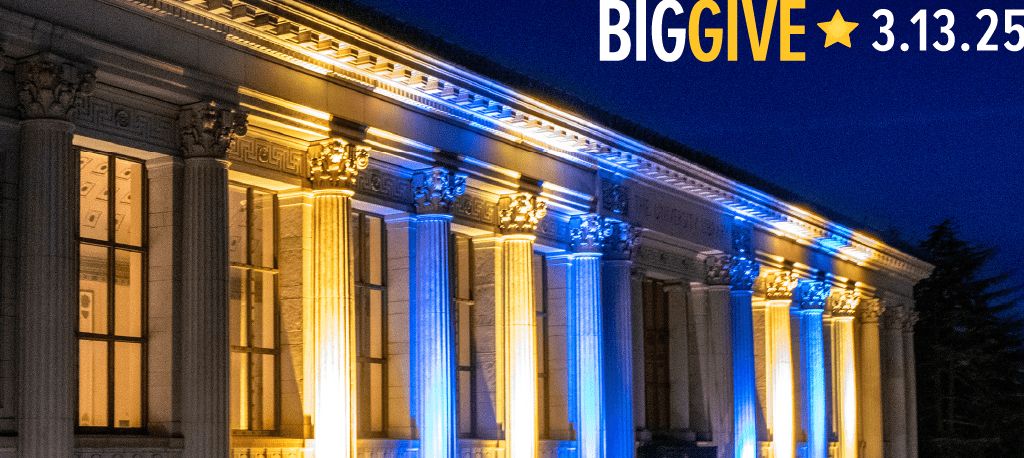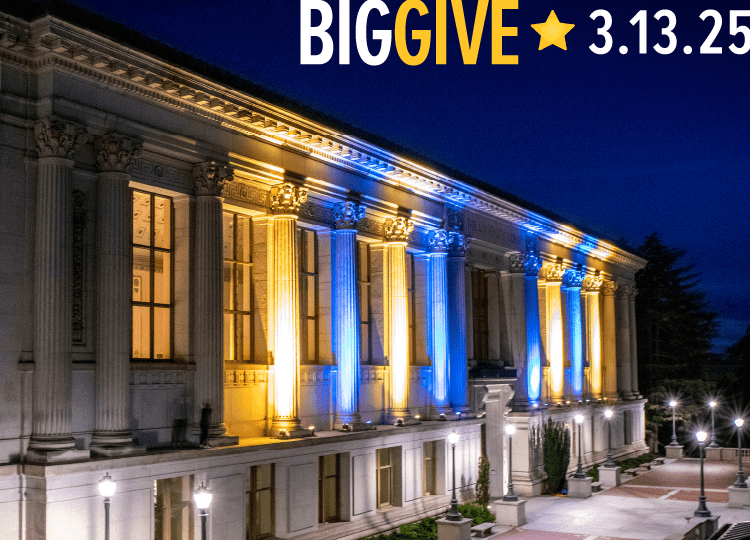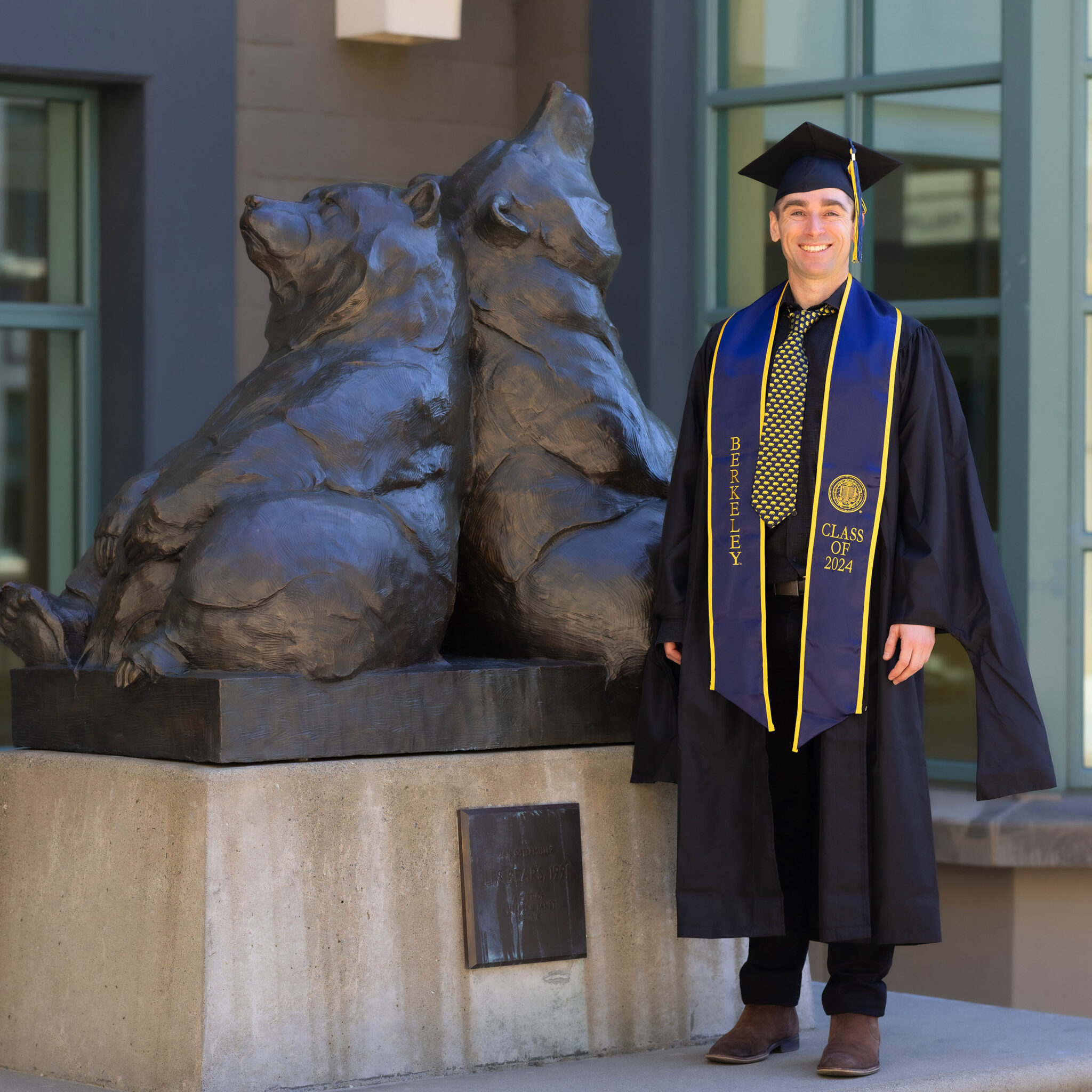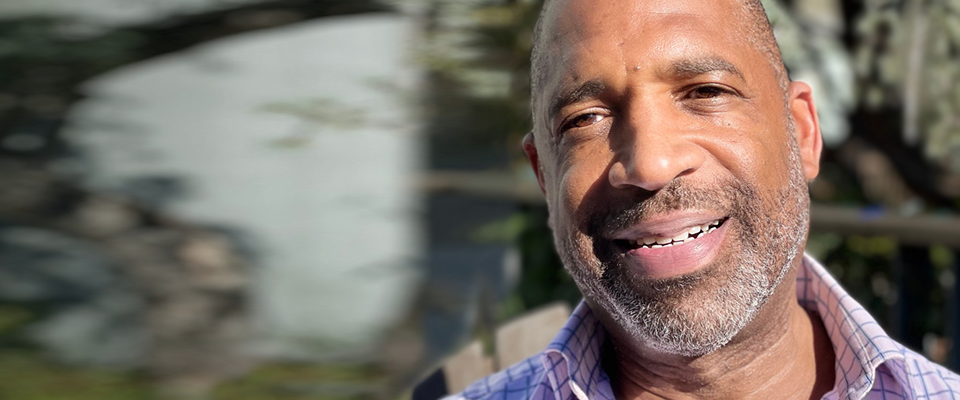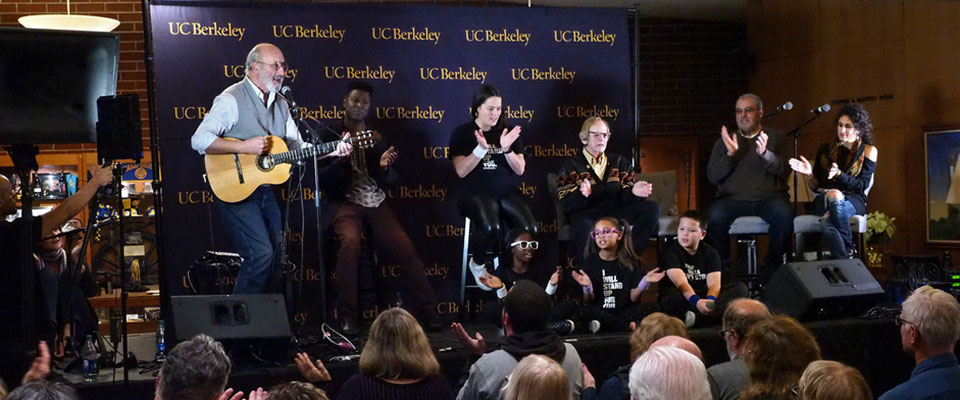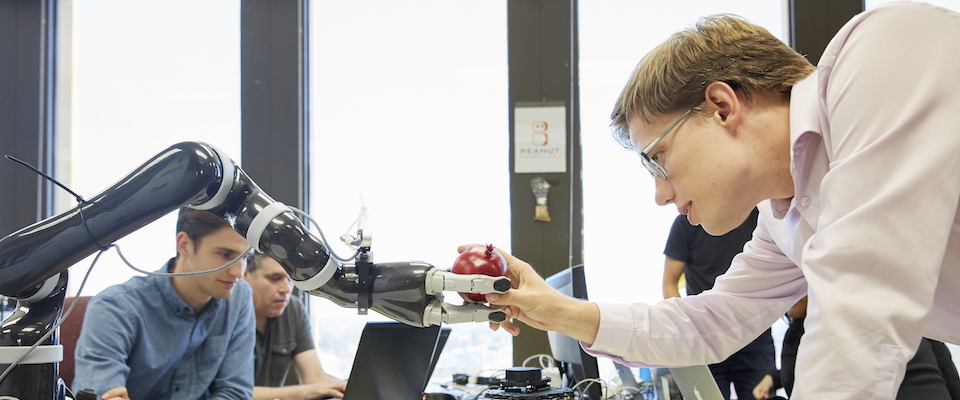Presented by
After working as a software engineer for several years, Paul Bryzek ’24 spent some time as a technology consultant helping other people launch startups. But then he realized he wanted to do the same for himself and decided to apply to UC Berkeley’s Haas School of Business to pursue an MBA.
Paul Bryzek worked in technology consulting for seven years before returning to UC Berkeley’s Haas School of Business to pursue an MBA. “I was looking for a change out of corporate America consulting,” he said. “I wanted to work at the intersection of financial success and impact to create personal fulfillment. I learned in my previous career that if the impact part is missing from a business, it’s not very sustainable.”
Bryzek’s newest venture, Carbon Sustain, is a carbon emission accounting and AI-driven insights-as-a-service company that lives at the intersection of financial success and impact. Carbon Sustain serves small and medium businesses. “What we do is turn the liability of carbon emission accounting into an asset,” he said. “It’s very expensive and time-consuming for businesses to accurately compute their Scope 1, 2, and 3 carbon emissions, which are ways to classify GHG (greenhouse gas) emissions based on where they originate.”
Scope 1 is direct emissions from sources owned or controlled by the company, such as burning fuel in vehicles. Scope 2 is indirect emissions generated from purchasing energy. Scope 3 is indirect emissions that occur in the company’s value chain, including upstream and downstream emissions such as emissions from employee commuting. Carbon Sustain created a Scope 1, 2, and 3 calculator that breaks emissions into different categories provided by the EPA. Instead of using an Excel sheet or something similar to track emissions, with Carbon Sustain, companies now have a user-friendly, modern app for tracking.
“What I really love about this business is I’m able to combine all of my strengths because there’s a technology component and an entrepreneurial component,” Bryzek said. He grew up in a family of entrepreneurs—his father Janusz Bryzek was often referred to as the “Father of Sensors” and the “Trillion Sensor Man” because of his involvement in MEMS (micro-mechanical integrated systems) technology. Paul’s brother, Michael, is also an entrepreneur.
Given his background and interests, it made sense for Bryzek to attend UC Berkeley. “Haas is among the best business schools to go to for entrepreneurship specifically and it’s known for sustainability,” Bryzek said. “I wanted to come to Haas to really learn how the pros are doing startups. And, of course, being able to get access to elite professors who are the world’s leaders in their fields, things like economics, finance, and accounting, is great.”
“Haas is among the best business schools to go to for entrepreneurship specifically, and it’s known for sustainability.”
Paul Bryzek ’24
The connections and support he received at UC Berkeley helped Bryzek turn Carbon Sustain from an idea into reality. He started with Berkeley StEP, a 10-week startup incubator program that brings together community members who have complementary skills and supports the development of their ideas. Under the tutelage of Rhonda Shrader, the executive director of the Berkeley Haas Entrepreneurship Program and the Bay Area Node for NSF I-Corps, Bryzek worked with five other MBAs to validate his idea and produce a pitch deck.
From there, things snowballed and Carbon Sustain placed fourth at pitch day and attracted more people and money to the project, bringing more success. As a Big Ideas winner in 2023, Bryzek and his team received training, recognition, and funding for their solution to solve the real-world problem of carbon emissions. They also joined the Center for Information Technology Research in the Interest of Society and the Banatao Institute (CITRIS) for an immersive experience that brought together experts and innovators across the UC system. That further helped them refine and polish their idea.
Carbon Sustain also won the Franklin Templeton University Blockchain Contest because they are using blockchain in an innovative way to track carbon emissions. “We’re working with a farm in Brazil that issues carbon credits on the blockchain and it’s verified with satellite images to prove that these trees exist, that they’ve been planted,” he said. “That sort of innovation was simply not possible 10 years ago.”
For other entrepreneurs trying to break into the sustainability world, Bryzek recommends not trying to do everything, but to focus on a niche. He also advises people to be OK with failure: “My father used to say, ‘Failure is a mandatory component of success.’ If you want to succeed, you have to embrace it.”


